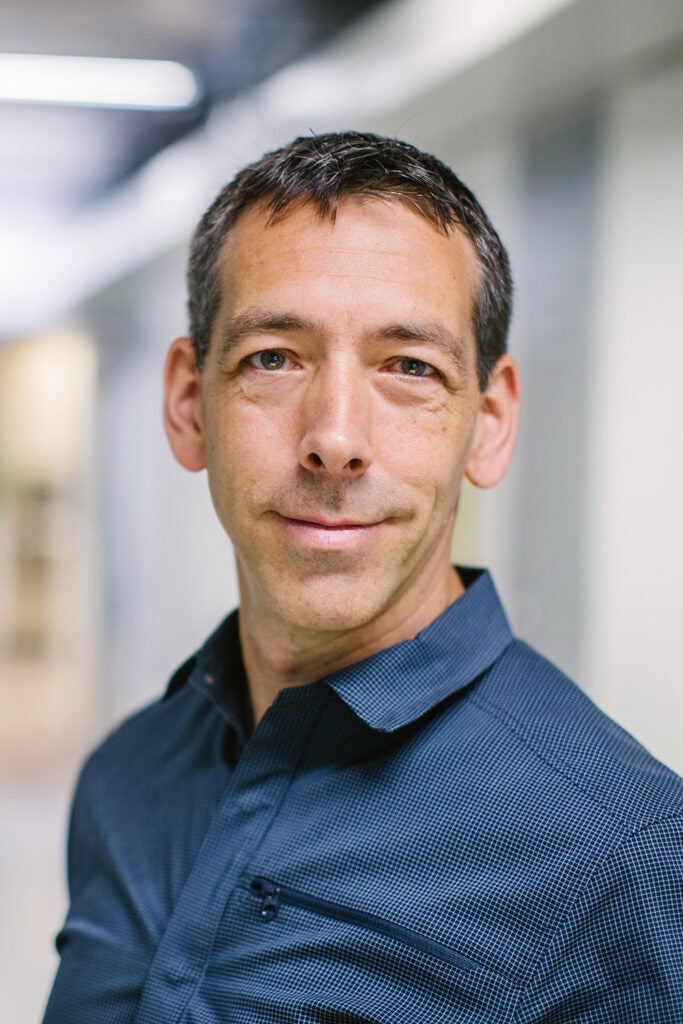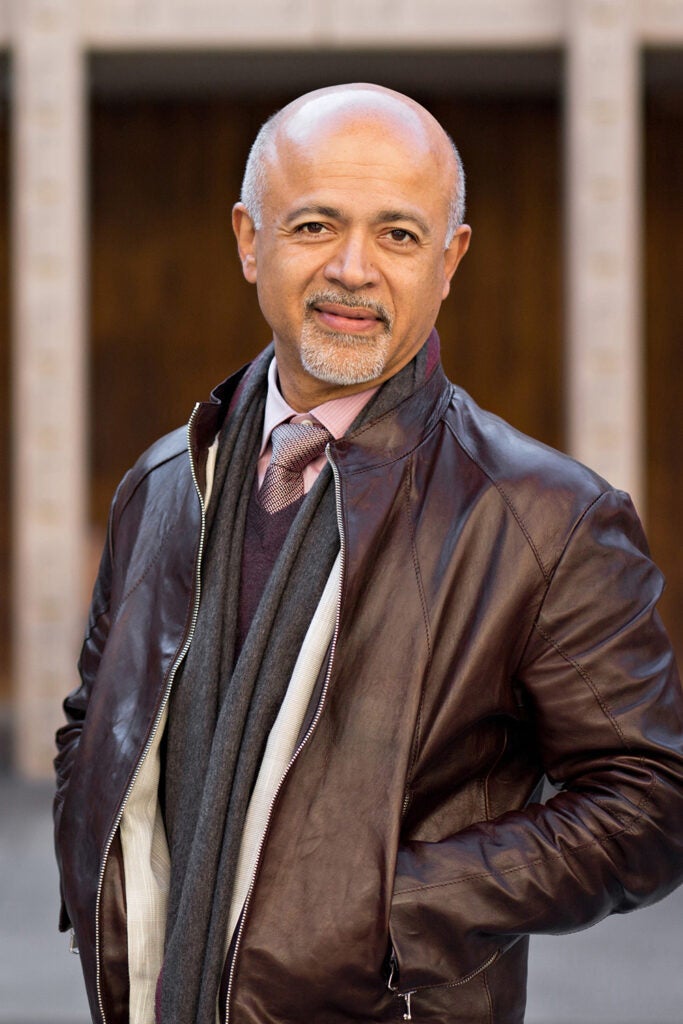Three Stanford scholars awarded Guggenheim Fellowships
Abraham Verghese, Gabrielle Hecht, and Euan Ashley have been recognized for their outstanding work and exceptional promise.
Three Stanford University scholars have been awarded 2023 Guggenheim Fellowships. This prestigious honor recognizes mid-career scholars, artists, and scientists who have demonstrated a previous capacity for outstanding work and continue to show exceptional promise.
This year’s fellows from Stanford are Euan Ashley, Gabrielle Hecht, and Abraham Verghese.
Euan Ashley is an associate dean of the School of Medicine, the Roger And Joelle Burnell Professor of Genomics and Precision Health, and a professor of medicine, of genetics, and of biomedical data science.
Ashley’s research group is focused on the science of precision medicine. In 2010, he led the team that carried out the first clinical interpretation of a human genome.
“Looking at the roster of inspirational figures from the arts, literature, and sciences who have previously received this accolade, I am humbled,” said Ashley. “I am particularly excited to be receiving the award in the same year as my friend Abraham Verghese, one of my favorite writers, period!”
With this fellowship, Ashley will build on his first book The Genome Odyssey – Medical Mysteries and the Incredible Quest to Solve Them. Through this new work of nonfiction, he aims to highlight the most profound moments of humanity through archival and historical research, interviews with patients and scientists, and deep exploration of the scientific literature.
“From our earliest conception to our last breath, the genome contributes to who we are, how we live, and how we will die,” said Ashley. “It connects us to the history of our species and all other living organisms on Earth; it is at the same time uniquely personal.”
Ashley is also a member of Stanford Bio-X, the Cardiovascular Institute, the Maternal & Child Health Research Institute (MCHRI), and the Wu Tsai Human Performance Alliance, and a faculty affiliate of the Institute for Human-Centered Artificial Intelligence (HAI).
Gabrielle Hecht, is a professor of history in the School of Humanities and Sciences and a senior fellow at the Freeman Spogli Institute for International Studies.
Her current scholarship explores radioactive residues, mine waste, air pollution, and the Anthropocene in Africa.
As a fellow, Hecht will be working on Inside-Out Earth, a book that examines the residues of energy materials and how that waste exacerbates inequalities.
“We are turning our planet inside out. The mass of everything ever made by humans now matches or exceeds the mass of all living things,” said Hecht, who is also the Stanton Foundation Professor of Nuclear Security. “More and more of this anthropogenic mass consists of discarded material, not the least of which are the wastes of industrial energy systems. These wastes produce and exacerbate inequalities, a trend that continues in the so-called ‘energy transition.’ ”
Hecht’s research looks at four different locations, including Chile, the world’s biggest copper producer and home to its largest lithium reserves. “These two materials are essential for the ‘energy transition,’ yet their production depends on fossil fuel plants,” said Hecht. She is also looking at coal in the Arctic, diesel air pollution in urban West Africa, and uranium in South Africa.
Hecht is currently the President of the Society for the History of Technology. Her new book, Residual Governance: How South Africa Foretells Planetary Futures, will be published by Duke University Press in November.
Abraham Verghese is the Linda R. Meier and Joan F. Lane Provostial Professor in the School of Medicine, professor of medicine, and vice chair for the theory and practice of medicine in the Department of Medicine.
Verghese’s research focuses on clinical skills and the bedside exam, including its technical aspects, and the importance of the ritual, and what is conveyed by the physician’s presence and technique. In addition to being a practicing physician and researcher, he is a best-selling author of three books and has a fourth book coming in May 2023.
“I am grateful to the Department of Medicine and the medical school for encouraging creativity outside of traditional clinical disciplines and giving me protected time to do so,” said Verghese, upon learning about the award. “I feel blessed to be at Stanford University with all its schools (including the medical school) on one campus. It fosters the cross-disciplinary pollination that has been vital to my work.”
With the Guggenheim Fellowship, Verghese plans to write a non-fiction book tentatively titled, The Body: An Intimate Biography. He said the aim of the book is to “synthesize my adventures and insights after over four decades of exploring the body.” While the details are likely to change as his writing process proceeds, Verghese maintains a common objective, explaining, “My ultimate goal with any book is, as always, fairly simple: a good story well told.”
Verghese received the Heinz Award in 2014 and was awarded the National Humanities Medal in 2015. He is also a member of the Stanford Cardiovascular Institute and the Stanford Center for Biomedical Ethics.

